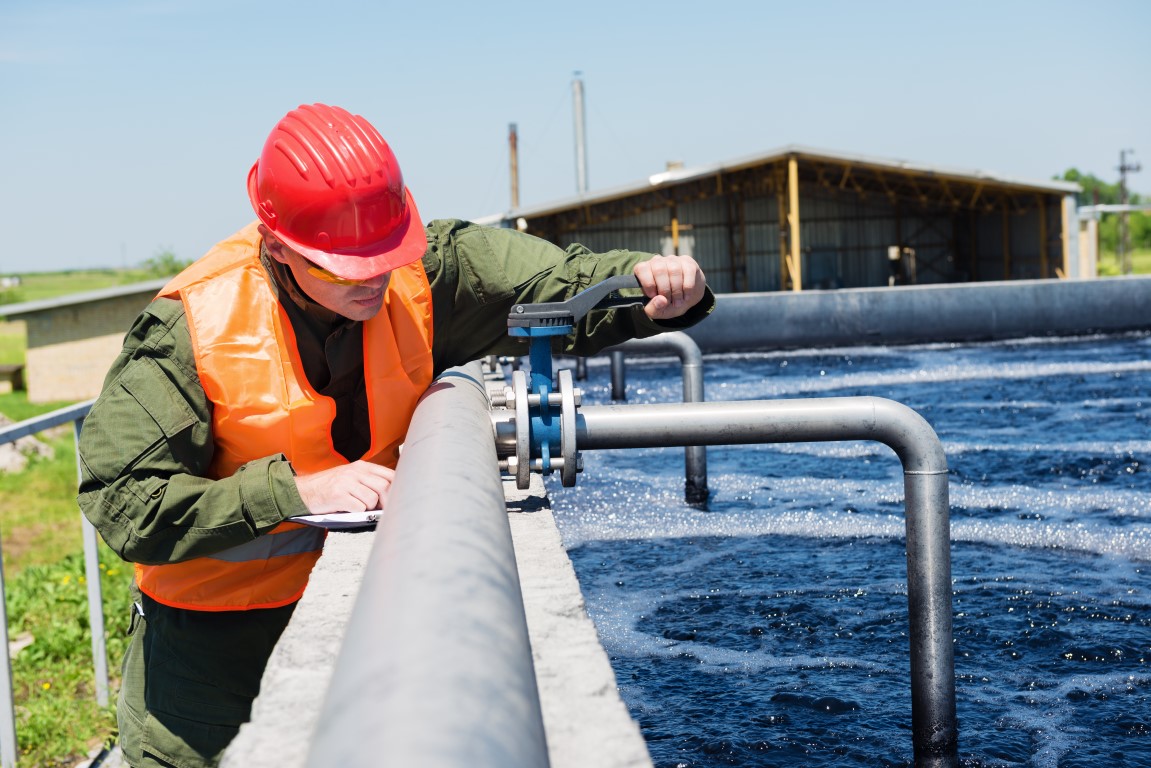Water Technology Processes
Water Technology and Processes focuses on the treatment of water and residual streams in urban, industrial, and agricultural settings.

The main aim of the section is to transition to greener and more circular solutions to manage both water and residual resources. We focus on the treatment of water and residual streams in urban, industrial, and agricultural settings. Processes and technologies are considered for waters across the continuum from source, potable, residual, drainage, and storm waters.
We work within physical-chemical processes, biotechnological processes, microbial electrochemistry, microbial ecology, water distribution and collection systems, system analysis, modelling and digitalization of water systems, and monitoring and control. The research is structured in four main areas:
Head of Section
Wenjing (Angela) Zhang Professor, Head of Section Water Technology & Processes Phone: +45 45251630 Mobile: +45 20352356 wenz@dtu.dk
Research topics
Research topic
Microbial electrochemistry
Understanding and development of microbial electrochemical processes and systems to address the water-energy nexus challenges, including recalcitrant (micro-nano) pollutants elimination, resources recovery and upcycling, water pollutants sensing, carbon capture and utilization, bioenergy and biochemical production, and communication among bacteria, electrode, and water interfaces for more efficient and cost-effective water management.
REsearch topic
Membranes
Understanding membrane processes for water treatment including the use of hydraulic, osmotic or electro-chemical gradients across semipermeable membranes. Particular focus is on new membrane designs, materials and operations.
Research topic
System analysis
Management of multiple water qualities in complex water systems requires development and application of tools to assess climate change mitigation and adaptation, energy efficiency, cost efficiency, health and risk, all in the context of circular economy.
Research Topic
Management of organic micropollutants in waters
Selection and optimization of treatment for chemical impurities from industrial pure water to wastewater and municipal drinking water to sewage. Dependence of matrix for process selection, efficiency and products and by-products.
Research Topic
Characterization of microbiomes
Unraveling the structure and function of microbial communities of water treatment and conveyance systems using a combination of physiological studies, molecular tools and ‘omics approaches to improve management of water engineering microbiomes.
Research Topic
Discovery and management in the engineered N cycle
Combining biogeochemical, molecular and physiological tools, and mathematical modeling and reactor engineering skills, we investigate the mechanisms and mitigations of biogenic N2O emissions, discover new N transformation metabolisms, and propose innovative solutions for N removal/recovery in different aquatic environments at lab- and full-scale.
Research Topic
Biofilms and bio-aggregates in water treatment processes
Novel biofilm reactor technologies, including MABRs, and aggregate-based systems; agent-based and continuum biofilm modelling, advanced analytical techniques including confocal microscopy and microelectrode inspection to assess and control biofilm architectures.
Research Topic
Treatment technologies in water supply
Understanding and optimization of treatment processes to ensure good water quality. This includes biological rapid sand filters removing e.g. ammonium and pesticides, softening, sensors, and monitoring of water quality.
Research Topic
Greenhouse gas during water treatment
Measurement of N2O emissions from wastewater treatment plant units using liquid, off-gas, and plume-based methods, experimental verification of mitigation scenarios, development of N2O as well as CO2 sinks.
Research Topic
Antimicrobial Resistance in the Environment
Fate of antibiotic resistance genes (ARGS) in mixed microbial communities across the urban water cycle, effect of environmental stress on ARG fate, high-throughput quantification/identification of ARGs and bacteria involved in transfer, mobilization, and persistence of mobile genetic elements, discovery of mediators and inhibitors of horizontal gene flow, including bacteriophages, to curb environmental spread of ARGs.
Research Topic
Resource recovery from residual streams
Development of technologies and integrated systems that reduce carbon footprint and emphasize resource recovery. This includes processes such as high-rate carbon and nutrient recovery systems, advanced nitrogen management processes (PN/A, DAMO) membrane aerated bioreactors, microbial protein and feeds (methanotrophs, hydrogenotrophs, microalgae, yeast), discovery of novel magnetotactic microbes for phosphorus recovery, anaerobic digestion and bioelectrochemistry for safe resource extraction.
Research Topic
Modeling and digitalization of urban water systems
Development of modeling frameworks predicting the performance of different elements and processes across the whole urban water system (water treatment, transport, and resource recovery) and integration with tools for holistic analysis (e.g., LCA) or process monitoring and control. Emphasis on development of models to estimate emissions from urban water systems to other environmental compartments (wet weather discharges to natural waters, N2O emission to atmosphere), fate of trace chemicals, digitalization of the water infrastructure (including instrumentation, control, and operation), use of modelling tools in an uncertainty framework, biofilm reactor systems, nutrient removal systems, sedimentation and separation processes, and antibiotic resistant bacteria/genes, algal processes, GHG emissions and anaerobic digestion.